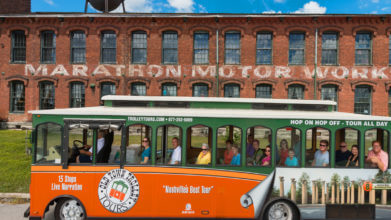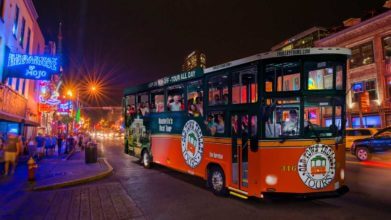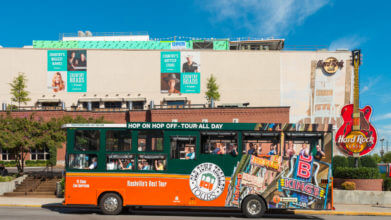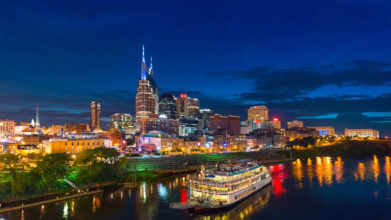Nashville Recording Studios Then and Now

Nashville is more than just the home of country music — it’s the heart of a recording industry that has shaped music worldwide. Known for its history and cutting-edge studios, the city has become a mecca for artists looking to record their next big hit. But behind the stars and chart-topping songs, the real magic often happens in the recording studios. From legends like Elvis Presley and Johnny Cash to today’s chart-topping artists, the stories of these studios highlight Nashville’s continuing role as a hub of creativity and musical innovation.
History of Nashville Recording Studios
Nashville’s recording industry didn’t start with high-tech studios or major labels — it began with simple field recordings in the early 20th century. These early efforts laid the foundation for what would eventually become Music City, USA. Over the years, Nashville studios have grown from humble beginnings to world-renowned facilities, shaping the sound of country music and beyond.
Early Days (Pre-WWII)
In the 1920s and 1930s, before formal Nashville recording studios existed, music executives traveled with portable recording equipment, capturing the voices of local talent. The sounds of early country pioneers like Jimmie Rodgers and the Carter Family were preserved during this era. These field recordings were a critical step in documenting and spreading Nashville’s musical heritage, helping to establish the city as a significant player in the music industry.
Birth of Studios (1940s-1950s)
The 1940s marked a turning point in Nashville’s music scene with the establishment of dedicated Nashville recording studios. WSM Radio, home of the Grand Ole Opry, was instrumental in this shift. Their facilities doubled as recording studios, allowing for live broadcasts and early recordings of artists that would later become household names. In 1946, Castle Recording Studios was founded, cementing Nashville’s place as a key city in the music world. From that point forward, the city’s music industry began to rapidly grow, laying the groundwork for future legends.
The Rise of Music Row (1950s-1970s)
The post-WWII period saw Nashville’s recording industry explode, particularly in the area known as Music Row. Located along 16th and 17th Avenues, this district quickly became a hub for musicians, songwriters, and recording engineers. By the late 1950s, RCA Studio B opened its doors, ushering in a new era for Nashville recording studios. This iconic studio not only produced hits for country stars but also for rock legends like Elvis Presley, who recorded many of his best-known songs there. It was during this period that the “Nashville sound” emerged, blending traditional country music with pop sensibilities to create crossover appeal.
Modern Nashville (1980s-Present)
By the 1980s, Nashville studios were adapting to new digital technologies. Recording shifted from analog to digital, giving producers and engineers new tools to experiment with. Studios like Black River Entertainment embraced these changes, expanding their services to include more diverse genres like rock, pop and hip-hop. Today, Nashville remains a vital center for music production, continuing to attract artists from across the globe. Its recording studios, old and new, represent a bridge between the timeless classics and the innovative sounds of the future.
Historic Studios Still Operational
Many of Nashville’s legendary studios are still in operation, continuing to record the hits of today while honoring their historic roots. These studios not only offer top-notch recording services but also carry a deep sense of legacy and tradition. Artists from around the world travel to Nashville recording studios for their state-of-the-art equipment and to record in the same rooms where music history was made. Each of these studios holds a special place in the heart of the city and the industry as a whole.
Black River Entertainment – Since 1970
Black River Entertainment is a pioneer in embracing digital technology while maintaining the classic warmth of analog recordings. Having been established in 1970, the studio is a hallmark of Music Row, blending modern capabilities with a strong sense of tradition. Artists who record here benefit from cutting-edge technology and decades of experience. Many iconic records have been crafted in these halls, and today, it remains a creative haven for both established musicians and rising stars across multiple genres.
Ocean Way Nashville Recording Studios – Since 2001
Despite being one of the newer Nashville studios, Ocean Way Nashville has quickly earned a reputation for excellence. Housed in a former church, this studio’s unique design and incredible acoustics make it a favorite for recording everything from orchestras to film scores. Its spacious layout is ideal for artists who want a grand full sound, and the team of skilled engineers helps ensure that every note comes out perfectly. The blend of historic architecture and modern technology makes Ocean Way one of the most unique and desirable studios in Nashville.
House of David – Since 1974
House of David stands out for its charm and intimate recording spaces. Having hosted everyone from country greats to indie rock bands, the studio provides a creative, relaxed atmosphere. Over the years, its reputation has grown as a hidden gem in Nashville’s recording scene, offering both vintage and modern equipment for artists looking to create their own magic. Artists love the blend of nostalgia and innovation, and the studio’s cozy yet professional setting continues to make it a sought-after location for sessions.
Parlor Productions – Since 1997
Parlor Productions is a place where both emerging artists and established names come to create. Combining vintage recording gear with modern conveniences, the studio has built a strong following. Its personal approach to recording makes it a standout option among Nashville recording studios. The Parlor is particularly known for its emphasis on artist comfort, creating an environment where musicians feel at ease, allowing creativity to flow freely. Many well-known albums have been recorded here, and it remains a favorite among artists looking for a quiet, focused recording experience.
Studios That Have Closed
Though some of Nashville’s most historic recording studios have closed their doors, their impact on the music industry remains undeniable. These studios were integral in shaping Nashville’s music scene, recording some of the most iconic tracks of all time. Their legacy endures not just in the music they helped produce, but in the studios that continue their traditions. While the buildings may no longer be operational, their stories are woven into the fabric of Nashville studios.
RCA Studio B
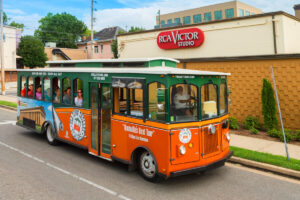 RCA Studio B, perhaps the most famous of all Nashville recording studios, was a powerhouse during its years of operation. Known for shaping the Nashville sound, the studio helped country music gain widespread mainstream appeal. Legends like Elvis Presley, Roy Orbison and Dolly Parton all recorded here, creating timeless hits that continue to resonate with audiences today. Though it no longer functions as a commercial studio, RCA Studio B has been preserved as a historic site, offering tours that let visitors experience the magic of one of Nashville’s most important musical landmarks. Walking through this iconic space, it’s easy to imagine the groundbreaking sessions that once took place within its walls.
RCA Studio B, perhaps the most famous of all Nashville recording studios, was a powerhouse during its years of operation. Known for shaping the Nashville sound, the studio helped country music gain widespread mainstream appeal. Legends like Elvis Presley, Roy Orbison and Dolly Parton all recorded here, creating timeless hits that continue to resonate with audiences today. Though it no longer functions as a commercial studio, RCA Studio B has been preserved as a historic site, offering tours that let visitors experience the magic of one of Nashville’s most important musical landmarks. Walking through this iconic space, it’s easy to imagine the groundbreaking sessions that once took place within its walls.
Quonset Hut Studio
Quonset Hut Studio was one of the first studios to open on Music Row, paving the way for the development of the area into the recording hub it is today. Opened in the 1950s by Owen Bradley and his brother, the studio played a crucial role in recording some of the biggest hits of the early country music era. Artists like Patsy Cline, Bob Dylan and Johnny Cash all worked in this space, adding to its legacy. Though the studio has since closed, its influence on the rise of Nashville as “Music City” cannot be overstated. The stories from Quonset Hut remain a significant chapter in Nashville’s music history, and its former location is still a revered part of Music Row’s landscape.
Omnisound Studios – Since 1985
In 1985, Omnisound Studios was a cornerstone of Nashville’s recording scene, known for its exceptional sound quality and commitment to musical excellence. Over the years, the studio attracted a wide variety of artists, establishing a reputation for its superior acoustics and top-tier equipment. Omnisound was a key player in the city’s music industry, recording an eclectic range of projects that showcased its versatility and dedication to innovation. Although now permanently closed, Omnisound’s legacy continues to resonate in Nashville’s music history, remembered as a place where creativity and high-quality production came together.
FAQs
What kind of recording studio experiences are available for visitors?
Visitors can explore the world of Nashville’s music industry by taking tours of iconic Nashville recording studios like RCA Studio B. Some tours also offer hands-on experiences, allowing you to step into a booth and record your own track, giving you a taste of what it’s like to be a Nashville recording artist.
What can I expect on a studio tour?
Studio tours often include a behind-the-scenes look at how music is recorded, as well as stories about the artists who’ve worked there. You’ll learn about the recording process, from mixing to mastering, and get a sense of the technological advancements that have shaped the industry.
Which historic studios are popular for tours?
RCA Studio B is by far one of the most popular historic studios for tours. Visitors can experience the magic of standing where legends like Elvis Presley and Roy Orbison recorded their timeless hits. While other studios like Quonset Hut are no longer operational, their stories continue to inspire those visiting Nashville.

